Thickness Measurement of Fiberglass Pipes and Tanks
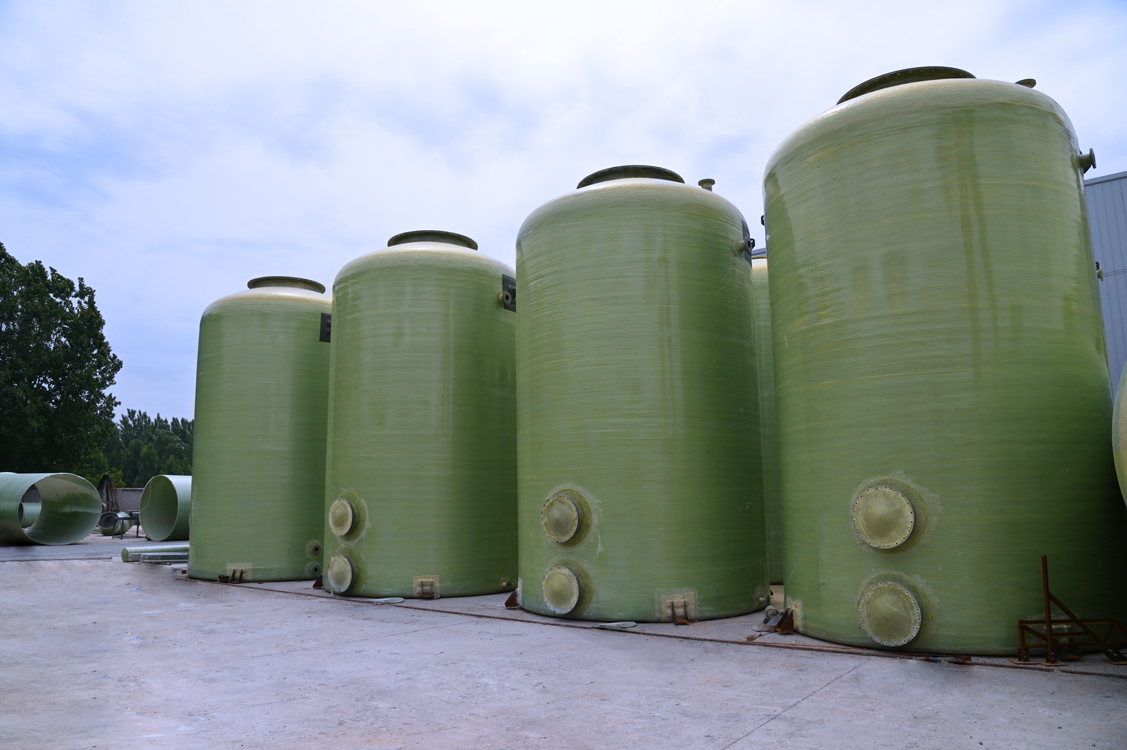
Fiberglass is an inorganic non-metallic material with excellent performance, wide variety, good insulation, strong heat resistance, good corrosion resistance, and high mechanical strength, widely used in corrosion-resistant pipelines, storage tanks and tanks in the petroleum and chemical industries, as well as in the shipbuilding industry for the production of working ships and recreational yachts.
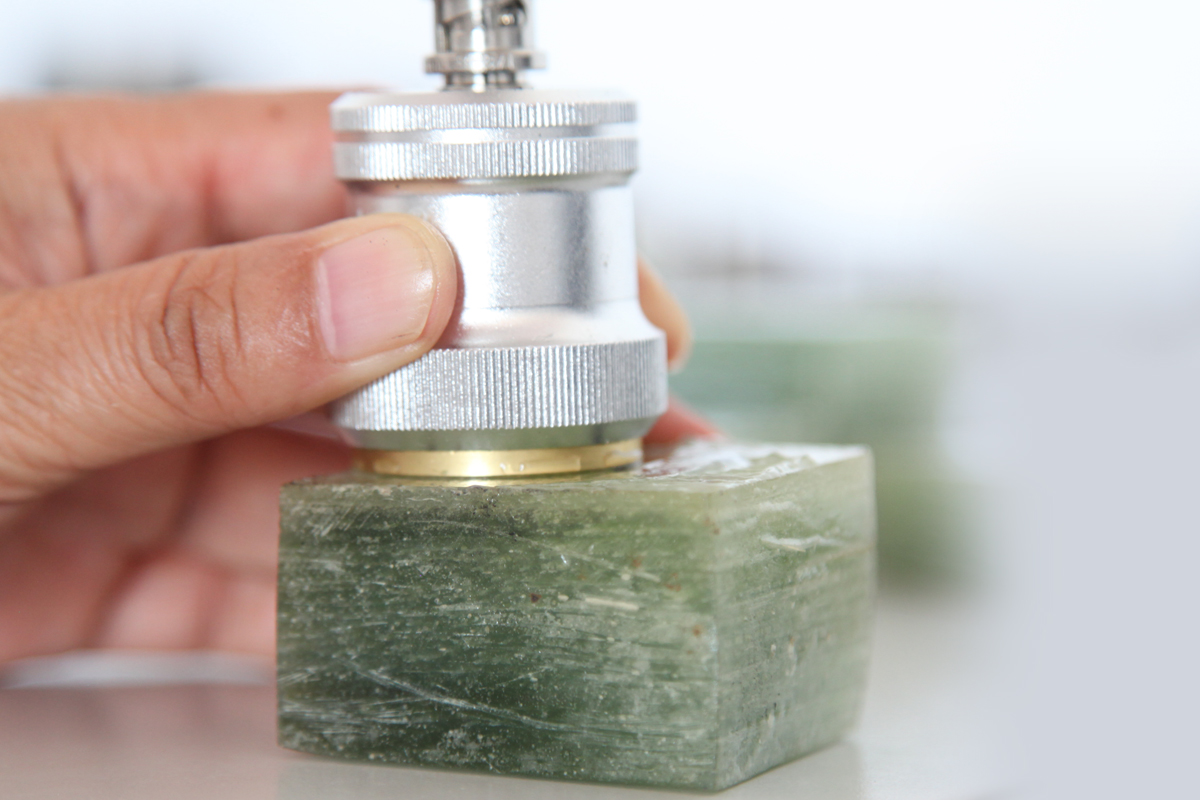
Ultrasonic thickness gauges can be used in a variety of fiberglass product inspection. During the inspection, the thickness gauge can measure the thickness of the workpiece from one side. For example, fiberglass tanks and pipes can be tested with thickness gauge as a verification process during their manufacturing process, as well as during their use to ensure that they are not corroded or have delamination defects due to the corrosive chemicals they contain.
Since glass fiber is commonly used in the pressing process, a certain amount of molded material is first placed in a metal mold, and then the required fiberglass products are formed under a certain temperature and pressure. Due to the different laminates, this material often exhibits higher amplitude internal reflections, which can cause false readings due to internal reflections interfering with the instrument. If false readings are observed under certain circumstances, it may be reflected echoes from various delaminations, while the backwall echo disappears completely. The unique real-time A-scan function of YUSHI ultrasonic thickness gauge helps users observe the waveform through echo display. After simple gain and blanking adjustments, the instrument displays the correct reading of the total thickness of the glass fiber material.
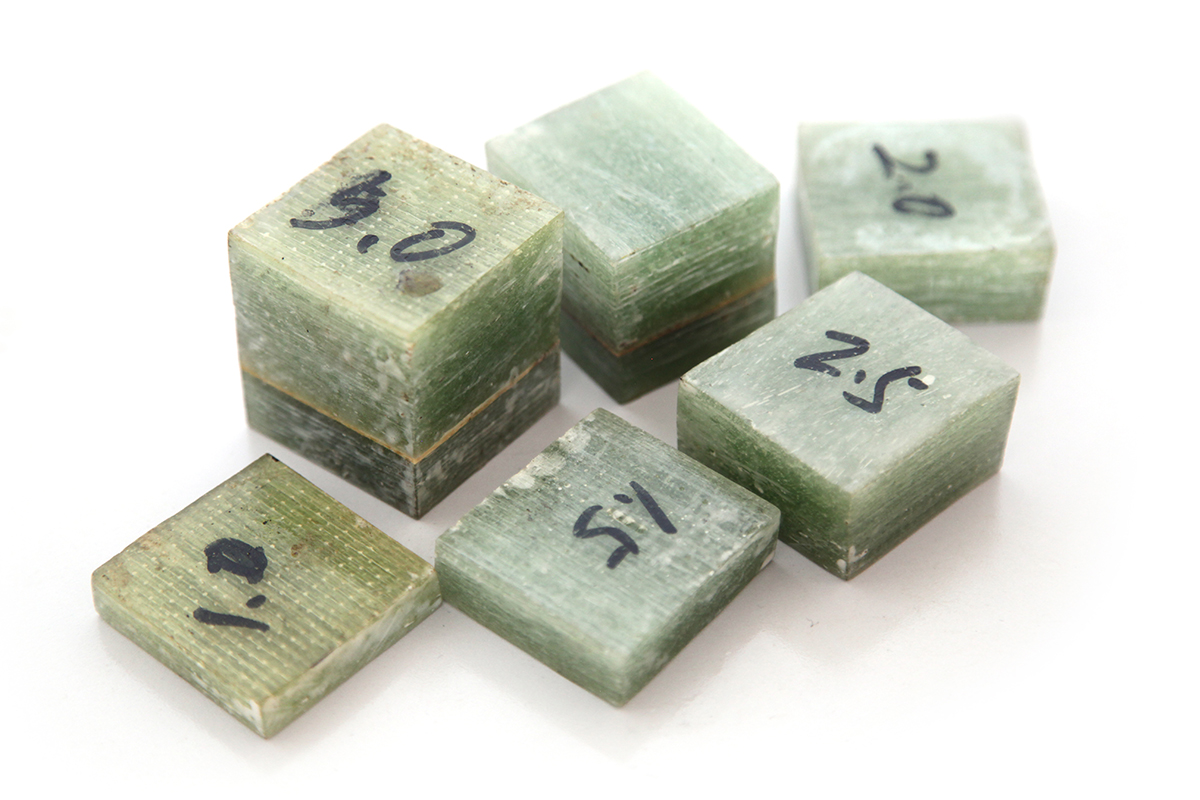
We received product samples from customers in different industries, the thickest reached 30mm. Using YUSHI ultrasonic thickness gauge for testing and comparison. The echo of glass fiber materials of different thicknesses was clear, convenient and fast, and the measured value was correct. The measuring range of FRP thickness depends on the forming process of FRP and the selected probe.
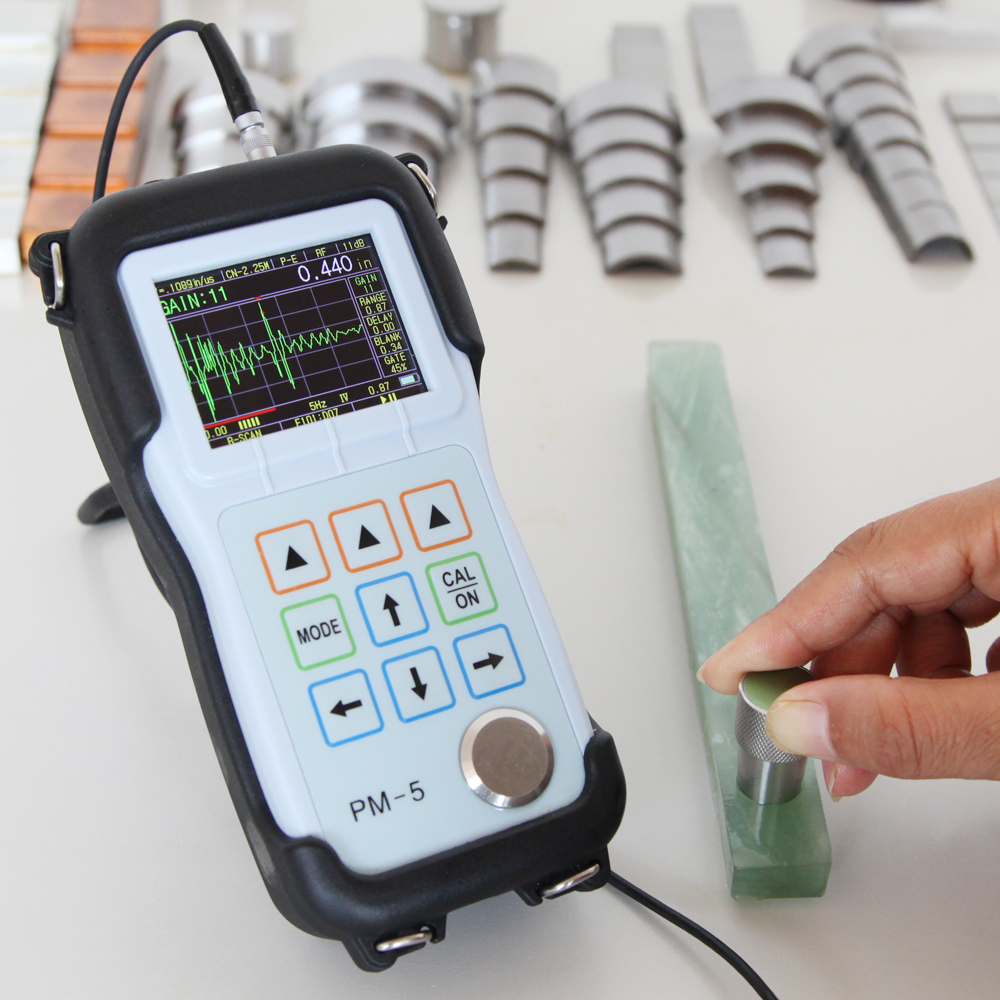
Thickness less than 12.5 mm can be measured using a 2.25M probe.
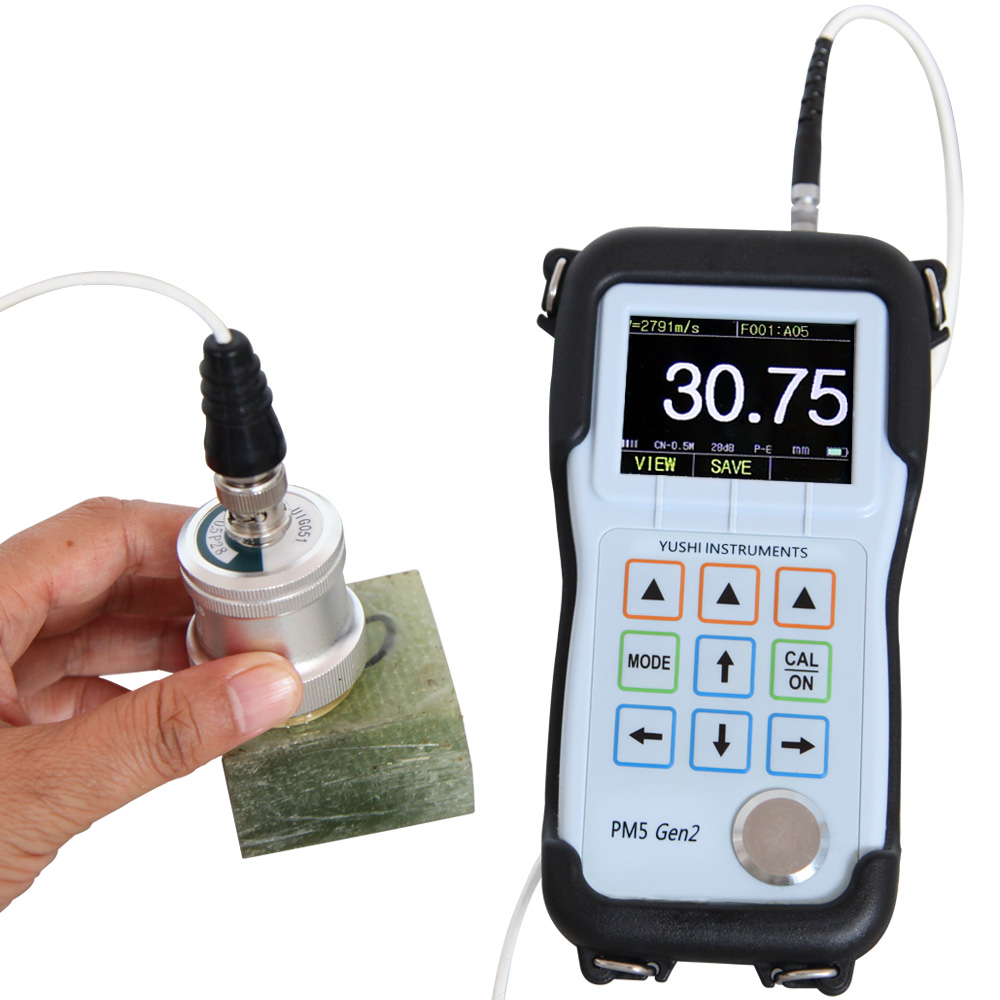
For thicker workpieces, a dedicated probe is required for measurement.
If you want to learn more about using ultrasonic technology to measure the thickness of glass fiber, or any problems in measurement applications, you can contact us for providing you with solutions.

